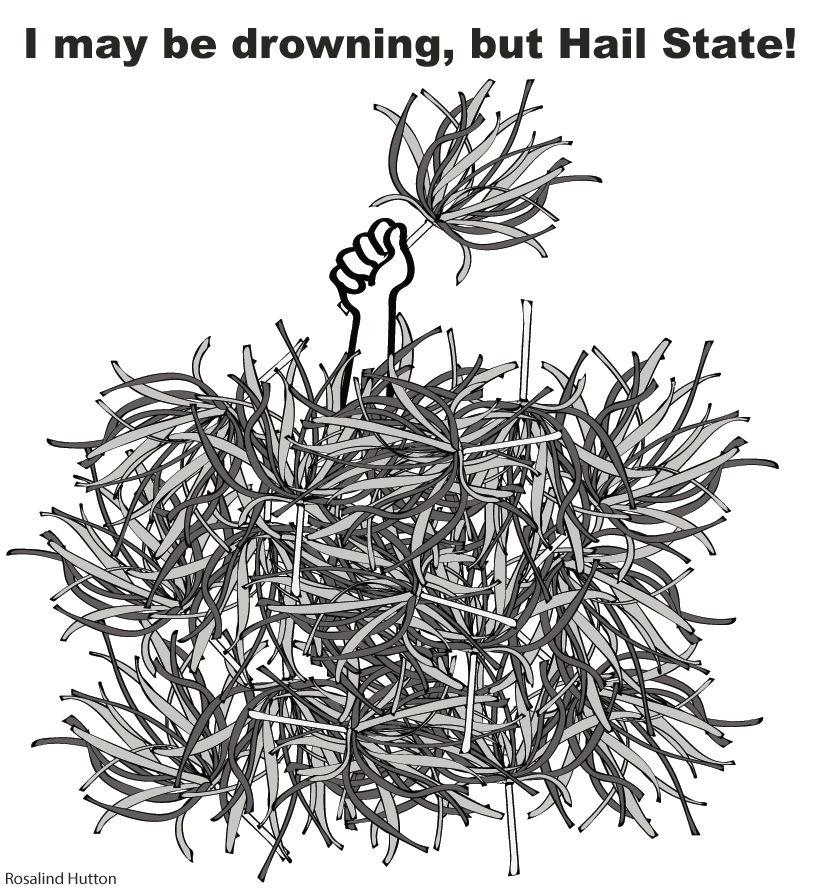Lately, there has been much controversy about the amount of plastic being used, especially in regard to water bottles and straws. The majority of plastic waste finds its way to the ocean, and the concentric revelation of one environmental issue impacting another, poses concern for environmentalists.
According to Trent Gillies of CNBC, in 2018, a movement to ban the use of plastic straws was born, since straws were found to contribute much of our waste. Many deem the straw as an “extra” and unnecessary for drinking. Mississippi State University has even joined in on this movement, as seen by the lack of plastic straws in the cafeterias.
In regard to plastic water bottles, the campus has implemented filtered water fountains in attempts to reduce to the amount of plastic bottles thrown away. In the Student Union’s Holmes Cultural Diversity Center, a filtered water fountain with an electronic count of the “saved” number of water bottles is included, providing a visual representation of the simple efforts one has contributed through a single refill. Recycling bins are also placed throughout campus, typically next to garbage bins, thus encouraging students to consider what is trash and what could be recycled.
With all the recent emphasis on lessening the use of plastic waste to promote conscientious and eco-friendly decisions, one form of plastic seems to proceed unnoticed. Bins full of rally pom-poms are often placed at entrances of sporting events, and these pom-poms consist solely of shredded fringes of plastic and even a plastic handle.
The average MSU pom-pom weighs 0.06 pounds, and the average attendance for MSU football games is roughly 58,000 people. Generously assuming only one fourth of the spectators take one pom-pom each, 870 pounds of plastic is wasted in just one game, not considering the number of plastic pom-poms left over.
Pom-poms are relatively cheap, as seen by the amount produced for masses of sporting crowds, and are designated for visual effect to rally a team’s performance, even from the nosebleeds. Hundreds of plastic pom-poms are distributed per sporting event, and are usually thrown away once the event is over.
More often than not, witnessed at MSU, the pom-pom is placed in the back pockets of spectators or is used to indicate a “saved” seat in the student section, and will inevitably be tossed at the conclusion of the game. However, a majority of the MSU student section and other Bulldog fans utilize the university’s signature cowbell clang to rally the Bulldogs rather than the fringed pom-poms.
Clearly, MSU is advocating for a healthier environment with its plastic straw reduction, the implementation of recycling bins and filtered water fountains. If this is so, the plastic rally pom-poms should be considered as well, especially since they, like the so-despised plastic straw, are not a necessity for bell-wielding Bulldog fans.
Even at basketball games where cowbells are not permitted for the indoor use, distracting props such as foam pool noodles, cardboard cutouts, unified crowd movements, “color” coordinating (white-outs, wearing all maroon) and even good-old-fashioned yelling and clapping are used in place of the cowbell. Pom-poms are just another “extra” to add to the visual spectrum of the crowd.
Perhaps a solution such as eco-friendly pom-poms can be introduced. According to Laura Marie Meyers of Popsugar, they can easily be made with a biodegradable tissue paper, like most confetti from musical concerts.
I am not saying we should completely ban the use of pom-poms from sporting events at MSU, but if the university is truly attempting to gravitate toward environmentally-conscious efforts, these plastic-offending tufts should be considered.
Categories:
For a truly eco-friendly campus, ditch the plastic pom-poms
About the Contributor

Riley Stephens, Former Opinion Editor
Riley Stephens served as the Opinion Editor from 2020 to 2021.
0
Donate to The Reflector
Your donation will support the student journalists of Mississippi State University. Your contribution will allow us to purchase equipment and cover our annual website hosting costs.
More to Discover

















































































